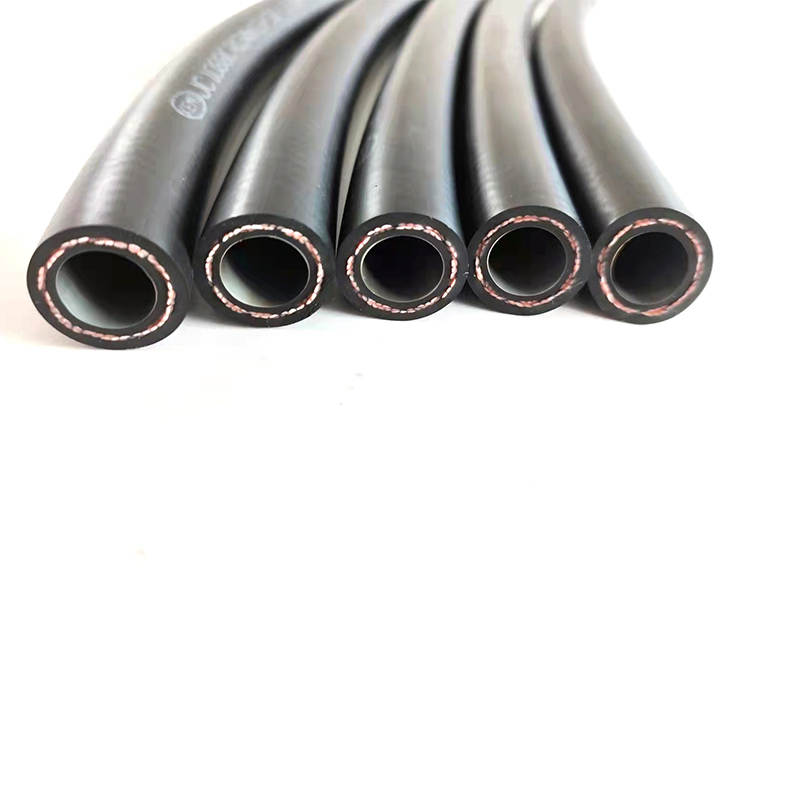Optimal Solutions for Fuel Return Hose Performance and Maintenance
ئۆكتەبىر . 16, 2024 11:17 Back to list
Optimal Solutions for Fuel Return Hose Performance and Maintenance
Understanding Fuel Return Hoses Importance, Function, and Maintenance
In the complex system of a vehicle’s fuel management, fuel return hoses play a crucial yet often overlooked role. These hoses are essential components that help regulate fuel flow, ensure optimal engine performance, and maintain the overall health of the fuel system. In this article, we will explore the importance, function, types, and maintenance of fuel return hoses.
What is a Fuel Return Hose?
A fuel return hose is a flexible tube that carries unused fuel from the engine back to the fuel tank. It forms part of the fuel delivery system, which typically includes fuel lines, filters, injectors, and pumps. When fuel is delivered to the engine, not all of it is used; some is returned to the tank to maintain consistent pressure and flow within the system. This is where the fuel return hose comes into play.
Importance of Fuel Return Hoses
1. Fuel System Efficiency The primary function of a fuel return hose is to maintain pressure within the fuel injection system. By returning excess fuel to the tank, it ensures that the fuel injectors operate efficiently, providing the engine with an optimal fuel-air mixture for combustion.
2. Temperature Control Returning fuel to the tank helps manage the temperature of the fuel system. As fuel circulates, it can absorb heat from the engine. The return system prevents the fuel from overheating, which can lead to vapor lock and other performance issues.
3. Reduced Emissions Fuel return hoses contribute to reducing engine emissions by ensuring that the fuel is being utilized efficiently. A well-maintained return system minimizes fuel wastage, thus lowering the environmental impact of the vehicle.
4. Engine Longevity Regular fuel flow regulated by the return hose contributes to a healthy engine. By preventing conditions such as fuel starvation, which can result in knocking and other harmful effects, the return system aids in extending engine life.
Types of Fuel Return Hoses
Fuel return hoses are typically made from different materials, including rubber, PVC, and synthetic compounds. The choice of material depends on the specific requirements of the vehicle's fuel system, such as temperature tolerance and chemical resistance. Generally, there are two main types of fuel return hoses
fuel return hose

1. Standard Fuel Return Hoses These are appropriate for conventional internal combustion engines where standard fuel delivery is required. They are designed to withstand regular fuel types and moderate pressure.
2. High-Performance Fuel Return Hoses These are used in high-performance vehicles or racing applications. They are often reinforced to handle higher pressures and are made from materials that can endure extreme temperatures and chemical exposure.
Maintenance of Fuel Return Hoses
Regular maintenance of fuel return hoses is essential to ensure their longevity and proper functioning. Here are key tips for maintaining fuel return hoses
1. Routine Inspection Regularly check the hoses for signs of wear and tear, such as cracks, leaks, or bulges. It's advisable to inspect hoses each time you perform an oil change or service your vehicle.
2. Check for Blockages Ensure that the hose is not clogged or obstructed, as this can lead to fuel delivery issues. Common causes of blockages may include dirt, debris, or the degradation of rubber hoses over time.
3. Replacement If you notice any damage during inspection, it’s crucial to replace the hose promptly. Worn-out hoses can lead to significant issues, including fuel leaks, which can pose risks of fire or engine damage.
4. Use Quality Parts When replacing a fuel return hose, opt for high-quality parts that meet the specifications of your vehicle. Inferior hoses may not withstand the pressure and conditions present in the fuel system.
Conclusion
Fuel return hoses may not be the most glamorous components of a vehicle, but their role in maintaining efficient engine operation is undeniable. By understanding their importance and ensuring regular maintenance, vehicle owners can enhance their vehicle’s performance and longevity while contributing to a lower environmental footprint. Whether you’re a car enthusiast or an everyday driver, recognizing the significance of these hoses is key to smarter vehicle care.
